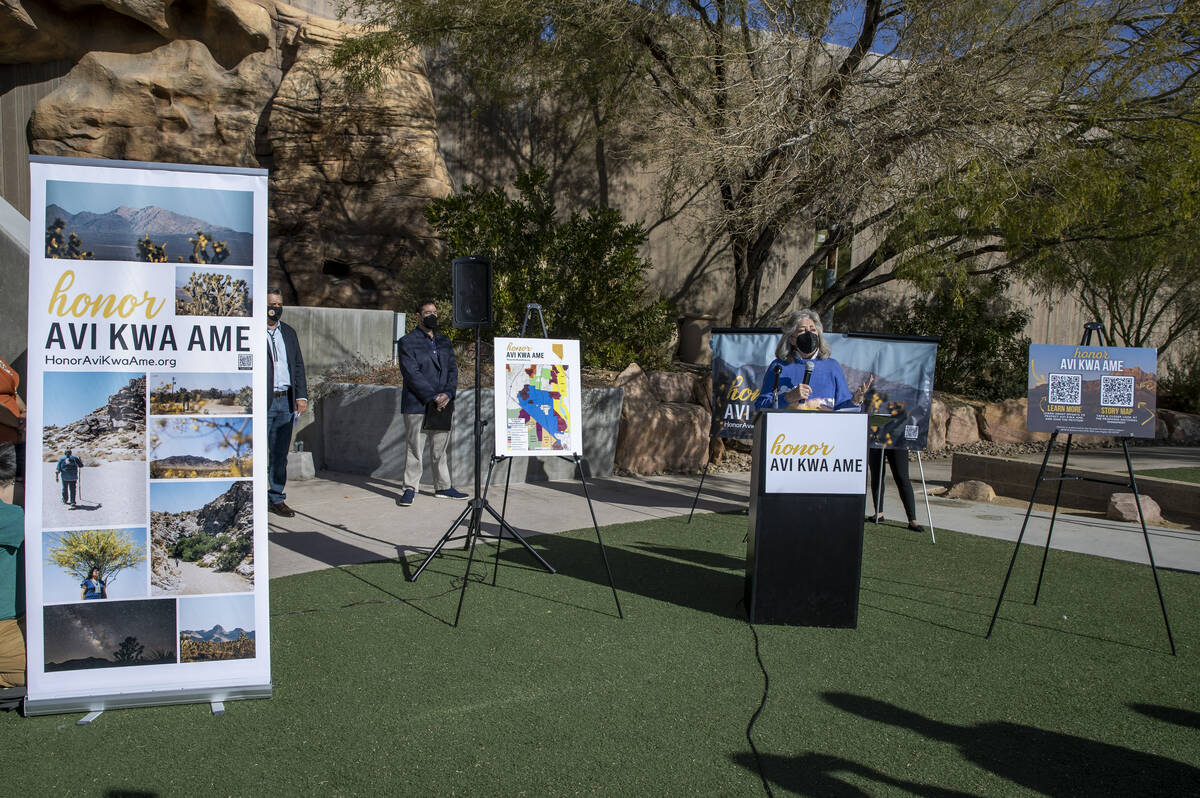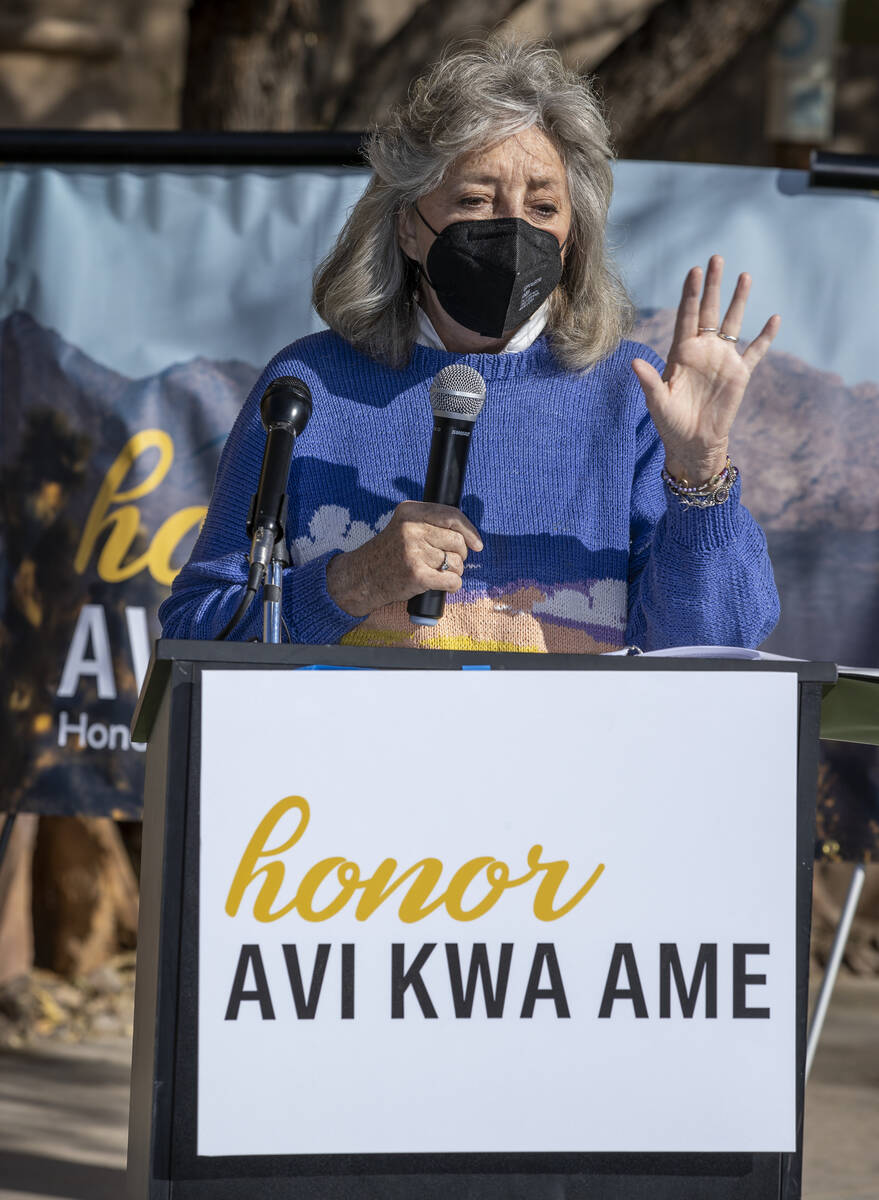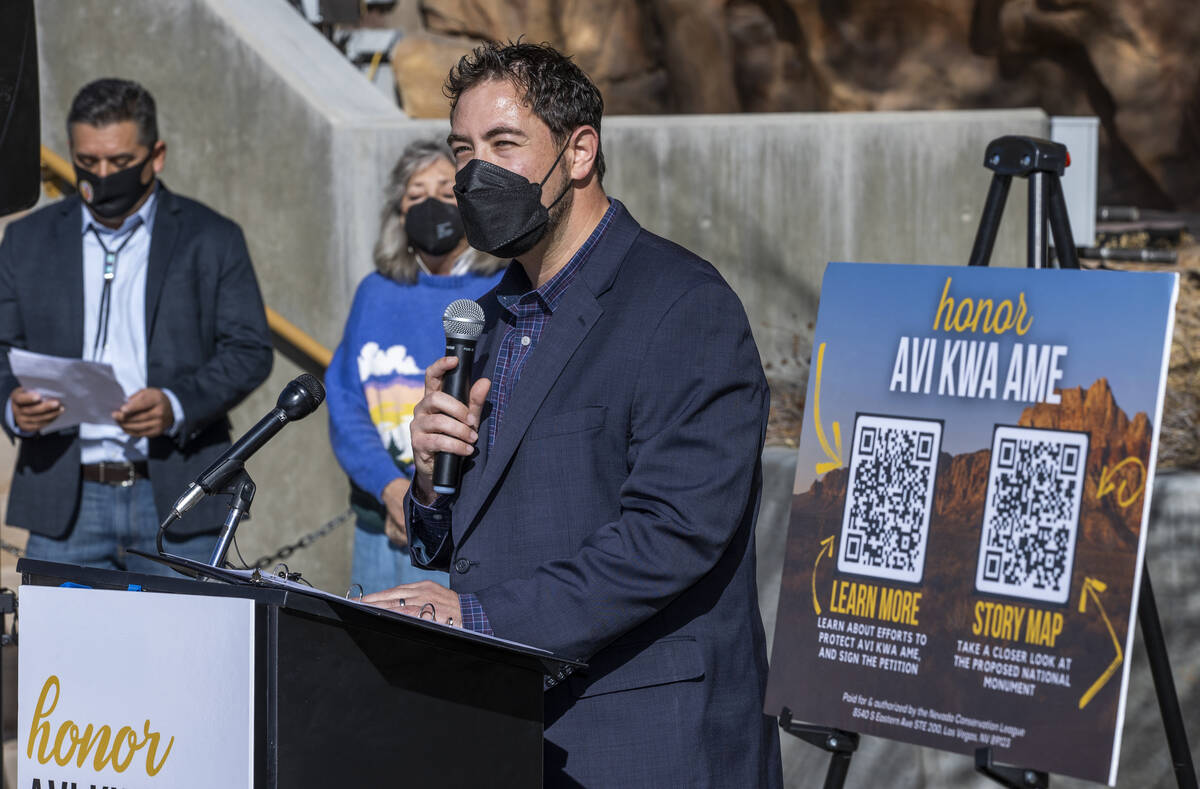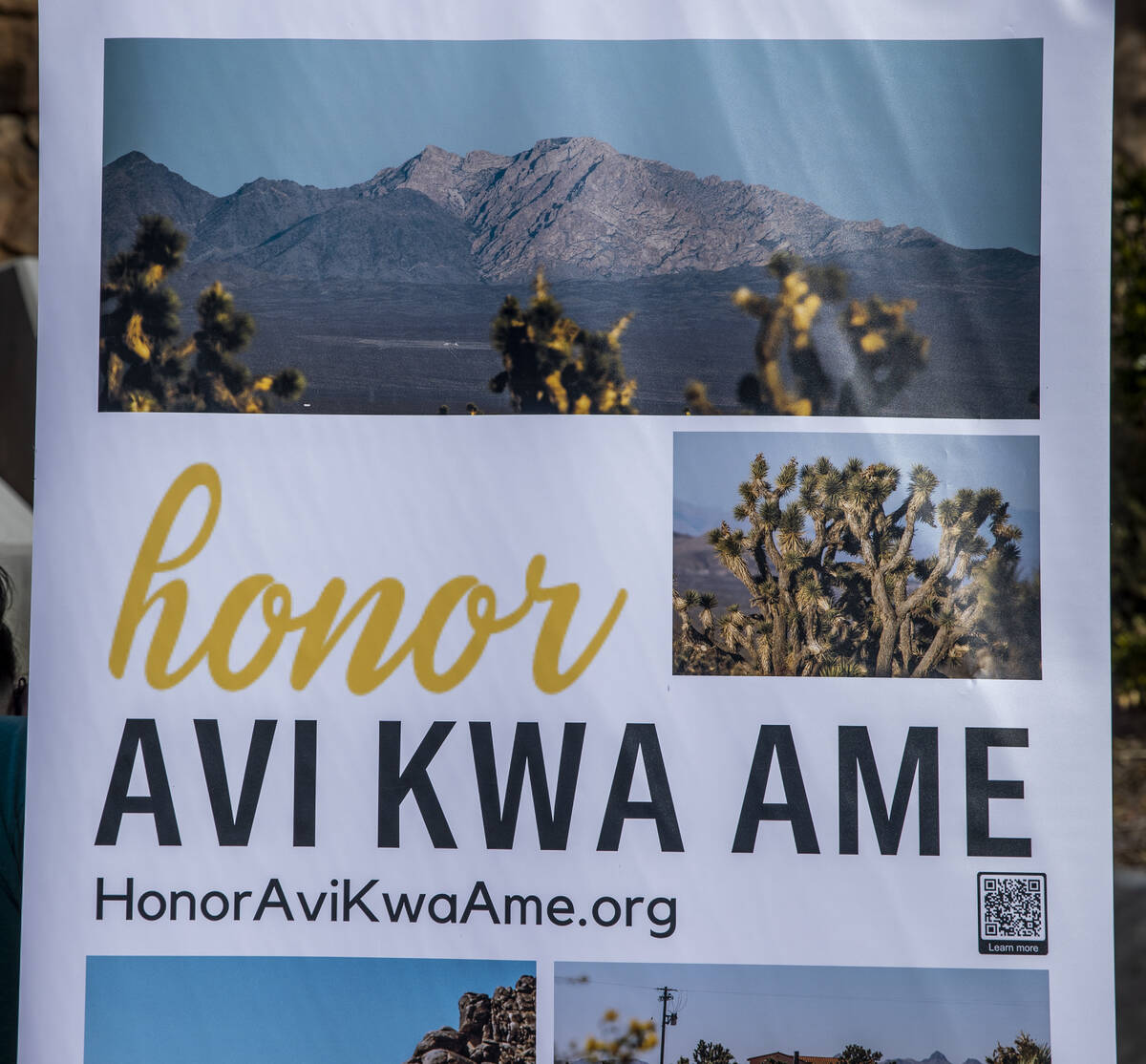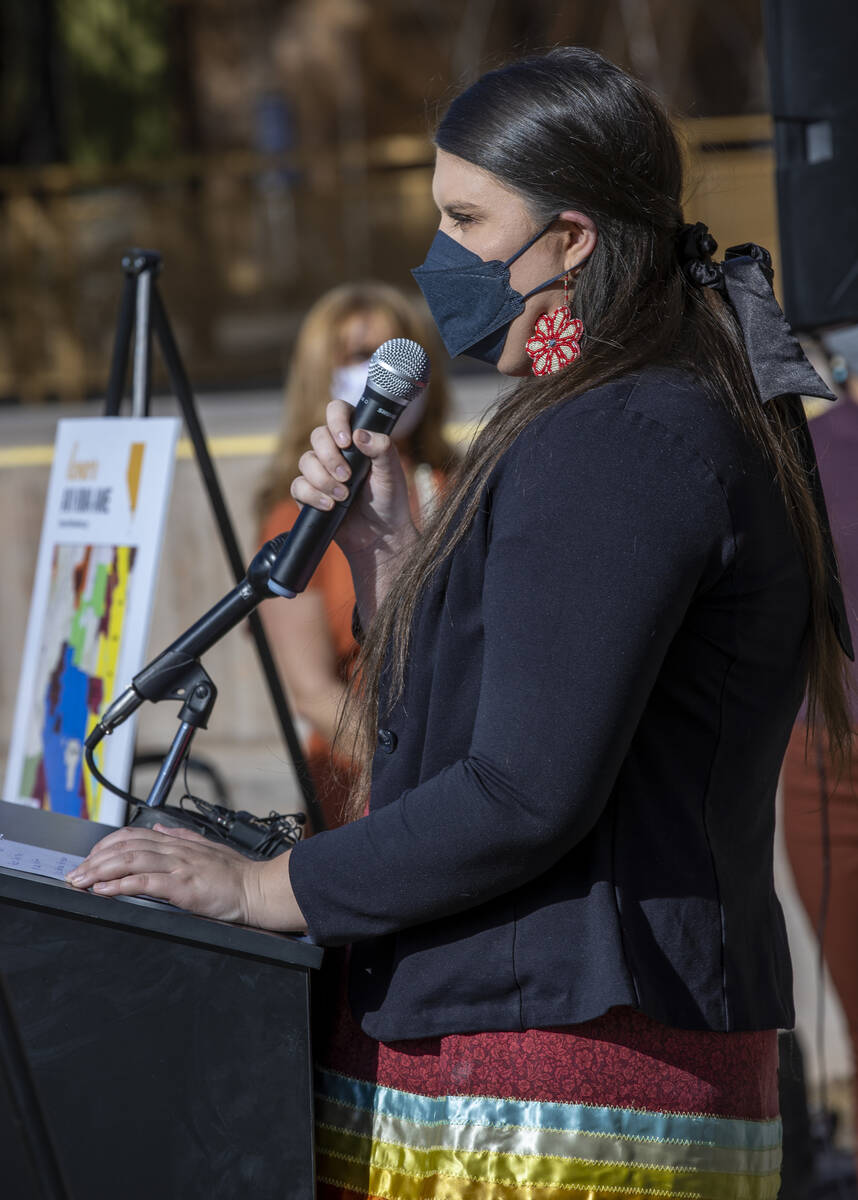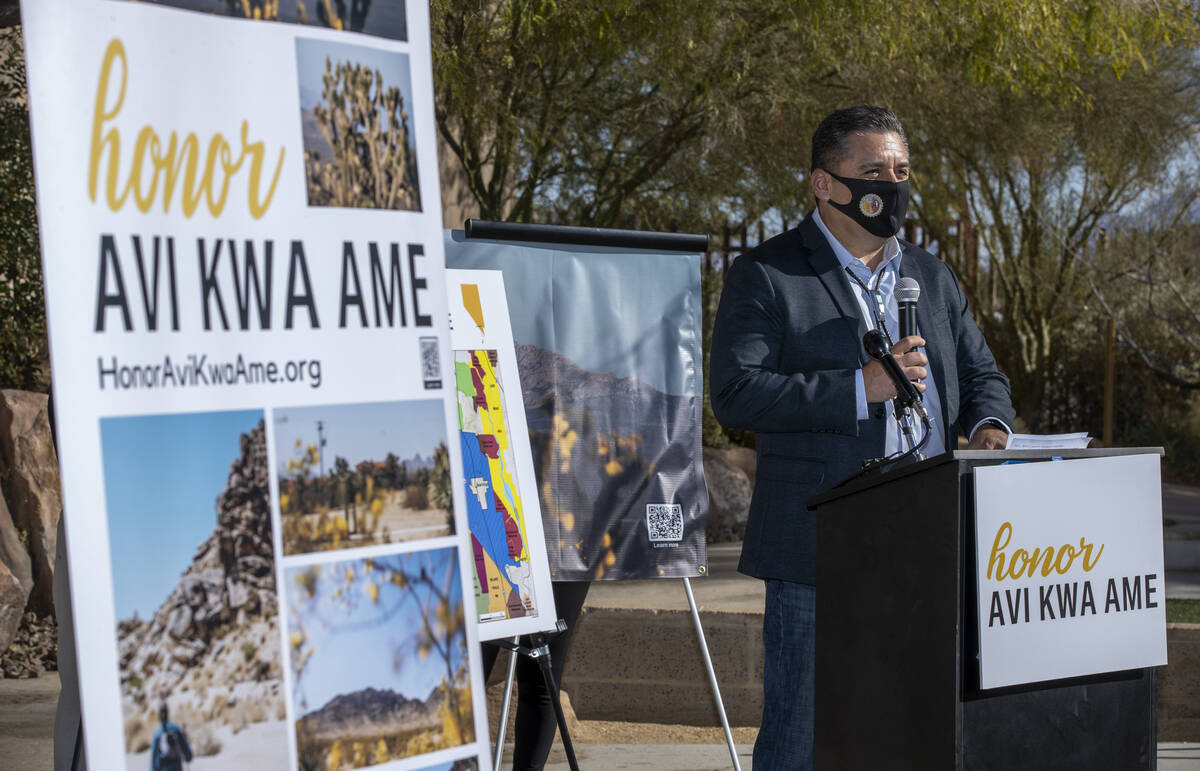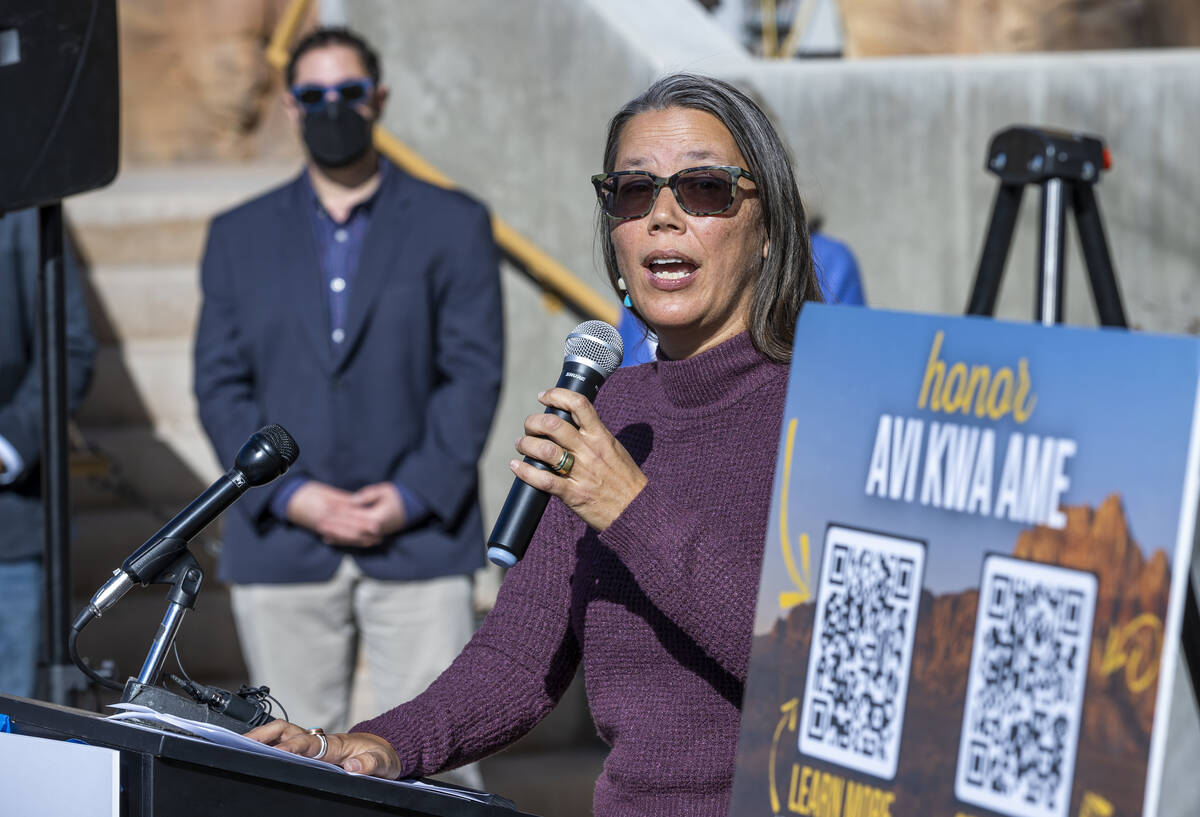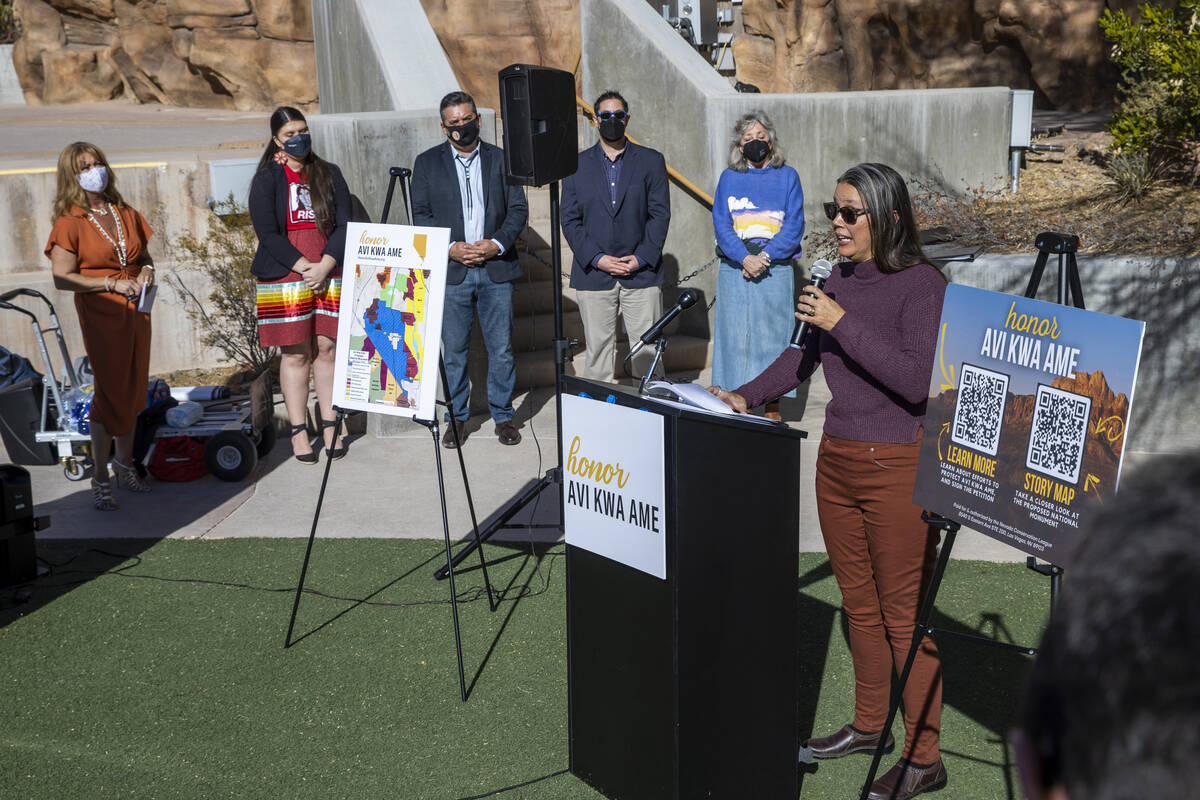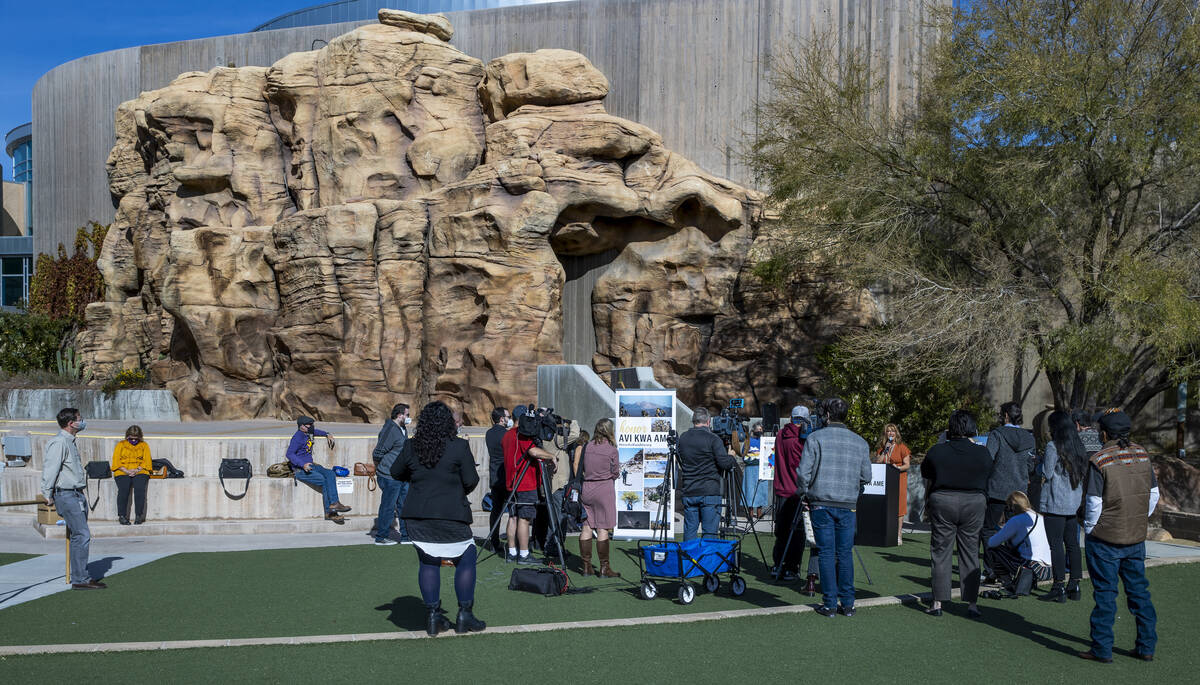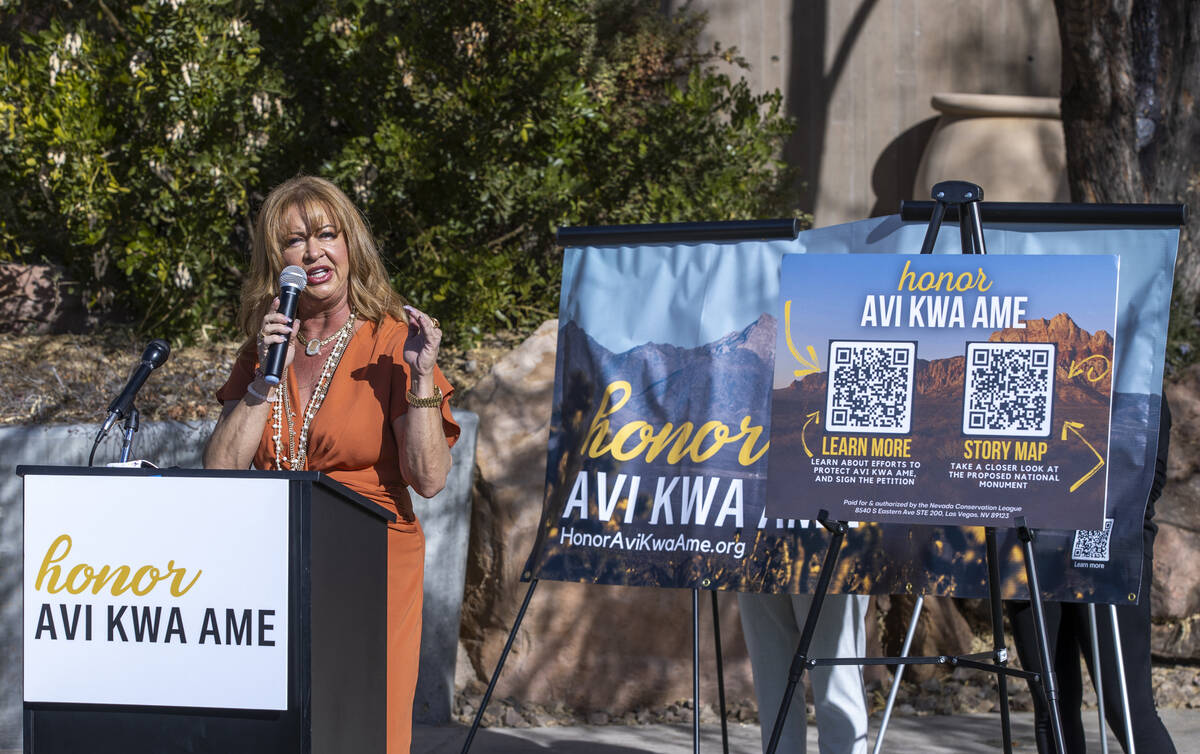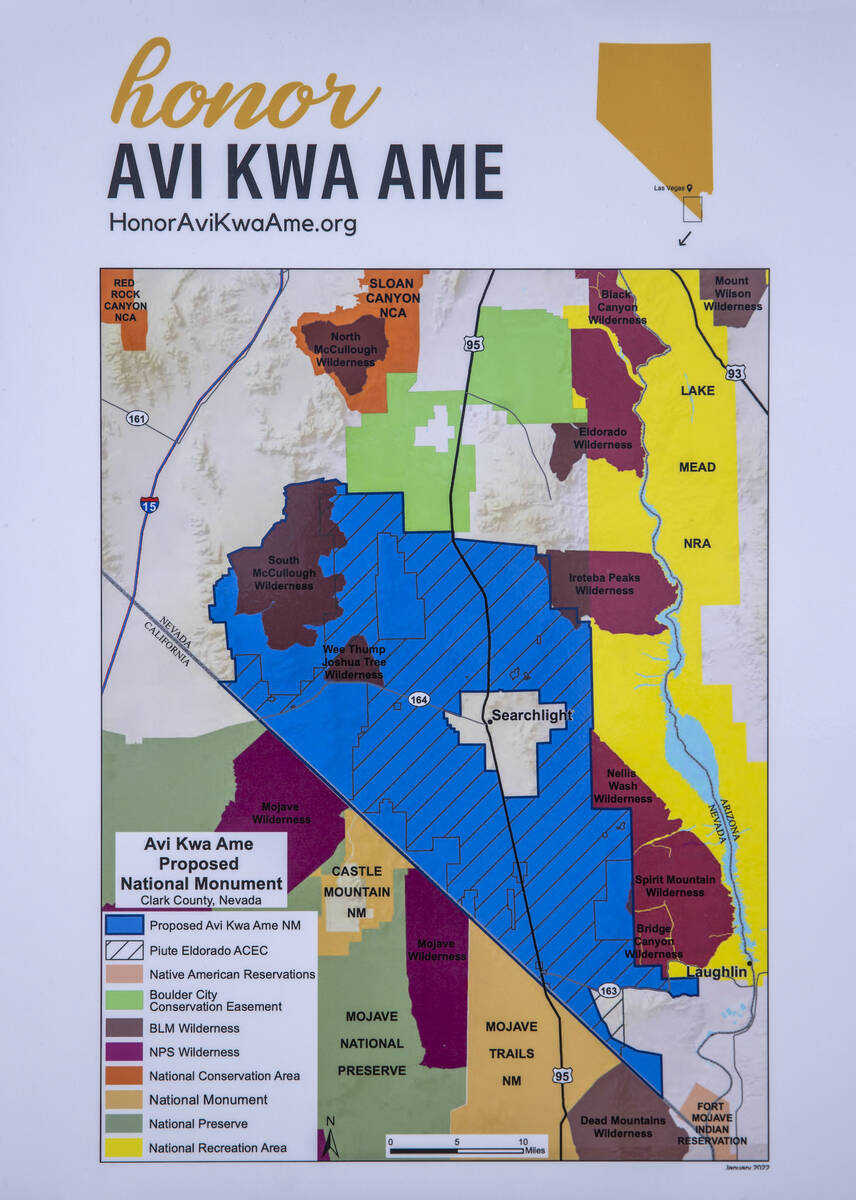Titus soon plans to push Avi Kwa Ame as national monument
Rep. Dina Titus said Friday that she intends to introduce legislation to designate Avi Kwa Ame as a national monument, ushering in federal protections for 450,000 acres of land sacred to indigenous tribes near the southernmost tip of Nevada.
Titus plans to push forward the legislation when she returns to Congress “in the next week or so,” she told reporters during a news conference from the Springs Preserve, which in itself is land important to Native Americans as one of the first settlements of the Southern Paiute.
Efforts to obtain national monument status for Avi Kwa Ame has been more than two decades in the making, and Titus was clear that she saw her role as simply carrying the project over the finish line.
“So now it’s time to take that last step,” she said.
Indigenous tribes have sought permanent protections for the swath of desert land near Searchlight since at least 1999, when nearby Spirit Mountain was designated a traditional cultural property by the National Park Service, according to Shan Lewis, vice chairman of the Fort Mojave Indian Tribe, which has been credited with spearheading the effort.
Titus’s announcement Friday “marks an important milestone in the long campaign to protect these lands that we all care about,” Lewis said.
A public awareness campaign launched last year by proponents included tribal and environmental groups, government leaders, local residents and recreation advocates. Taylor Patterson, executive director of Native Voters Alliance Nevada, said it has been a grassroots effort to bring federal protections within reach.
Boost for outdoor economy?
The territory, adjacent to the California border, includes granite mountains, Joshua tree forests, natural springs, desert animals and plants, and many cultural relics. It is also home to a historic ranch that once belonged to Hollywood actors Clara Bow and Rex Bell. Titus said that she hoped that Nevada’s congressional delegation would be supportive.
Titus cited a poll from the progressive think tank Data for Progress, which found that 62 percent of Nevada voters were in favor of the monument. The plan received 77 percent of support, she said, from voters who approve of President Joe Biden’s initiative to protect 30 percent of the nation’s public lands by 2030.
Officials said that beyond aligning with the White House’s goal, which has been backed by Nevada and Clark County lawmakers, the monument designation would act as a boon for the outdoor tourism economy after it was struck by visitation declines during the pandemic.
Titus said the industry has lost about 6 percent of its jobs and seen 13.7 million fewer visitors since the COVID-19 outbreak. County Commissioner Michael Naft said the state’s outdoor economy supports 49,000 jobs and generates nearly $4 billion in annual economic activity.
The county has invested $2.7 million on conservation projects that will benefit the proposed monument since 2001, he said, and it plans to spend another $3.8 million this year to restore areas within the monument’s planned borders, improving the habitats for species such as the desert tortoise.
“We know that it is a changing world and this monument designation is a change,” said Kim Garrison Means, a conceptual artist who has led conversations on the proposal in Searchlight and other rural communities. “But it is one that will help us protect this unique and pristine landscape in the way it has always been, and to protect our paradise for generations to come.”
Contact Shea Johnson at sjohnson@reviewjournal.com or 702-383-0272. Follow @Shea_LVRJ on Twitter.



